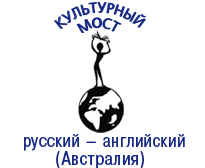
|

Книги о животных в Средние века
Светлана Прудовская
Книги о животных в Средние века
«Из «Истории книги своими руками. Продолжение»
В Средние века к животным относились с большим вниманием: о них писали книги, к их повадкам присматривались и находили много общего в их поведении с людскими нравами. Провинившихся животных даже судили в настоящих человеческих судах и строго наказывали по приговору судьи.
Экзотических животных правители государств держали в зверинцах и посылали друг другу в качестве дорогих подарков. В документе XVII века сказано, что английский король прислал русскому царю, среди прочих подарков, «2 птицы попугаи, да зверь индейский антипон».
(Что это за таинственный и сказочный зверь антипон?)
В те времена часто переписывали и украшали рисунками книги о животных – бестиарии. Название «бестиарий» произошло от латинского слова bestia – «зверь». Авторы бестиариев рассказывали о фантастических животных; эти рассказы сопровождались нравоучительными комментариями.
ПЕРЕВОД ТЕКСТА НА АНГЛИЙСКИЙ ЯЗЫК
Svetlana Prudovskaya
Books About Animals in the Middle Ages
"From "Stories about hand-made books. The Sequel"
In the Middle Ages, animals were treated and studied with great interest: books were written of them, their behaviour was closely monitored and many similarities between various animals and humans were found. Animals were even tried and judged in courts that were typically used for humans, and some animals were convicted and harshly sentenced.
More exotic animals were held in zoos by royalty and other wealthy figures and were exchanged between rulers as very expensive gifts. A document found from the 17th century states that the English king gifted the Russian Tsar, among other things, “two parrot birds, and an Indian beast called an antipon”. (What is this mythical and peculiar beast known as an antipon?)
In those times books of animals were often copied and illustrated, and were known as bestiaries. The name “bestiary” originated from the Latin word "bestia" – meaning “beast”. Authors of bestiaries told of fantastical beasts; these narratives were accompanied by moralizing comments.
Книги о животных в Средние века
«Из «Истории книги своими руками. Продолжение»
В Средние века к животным относились с большим вниманием: о них писали книги, к их повадкам присматривались и находили много общего в их поведении с людскими нравами. Провинившихся животных даже судили в настоящих человеческих судах и строго наказывали по приговору судьи.
Экзотических животных правители государств держали в зверинцах и посылали друг другу в качестве дорогих подарков. В документе XVII века сказано, что английский король прислал русскому царю, среди прочих подарков, «2 птицы попугаи, да зверь индейский антипон».
(Что это за таинственный и сказочный зверь антипон?)
В те времена часто переписывали и украшали рисунками книги о животных – бестиарии. Название «бестиарий» произошло от латинского слова bestia – «зверь». Авторы бестиариев рассказывали о фантастических животных; эти рассказы сопровождались нравоучительными комментариями.
ПЕРЕВОД ТЕКСТА НА АНГЛИЙСКИЙ ЯЗЫК
Svetlana Prudovskaya
Books About Animals in the Middle Ages
"From "Stories about hand-made books. The Sequel"
In the Middle Ages, animals were treated and studied with great interest: books were written of them, their behaviour was closely monitored and many similarities between various animals and humans were found. Animals were even tried and judged in courts that were typically used for humans, and some animals were convicted and harshly sentenced.
More exotic animals were held in zoos by royalty and other wealthy figures and were exchanged between rulers as very expensive gifts. A document found from the 17th century states that the English king gifted the Russian Tsar, among other things, “two parrot birds, and an Indian beast called an antipon”. (What is this mythical and peculiar beast known as an antipon?)
In those times books of animals were often copied and illustrated, and were known as bestiaries. The name “bestiary” originated from the Latin word "bestia" – meaning “beast”. Authors of bestiaries told of fantastical beasts; these narratives were accompanied by moralizing comments.



